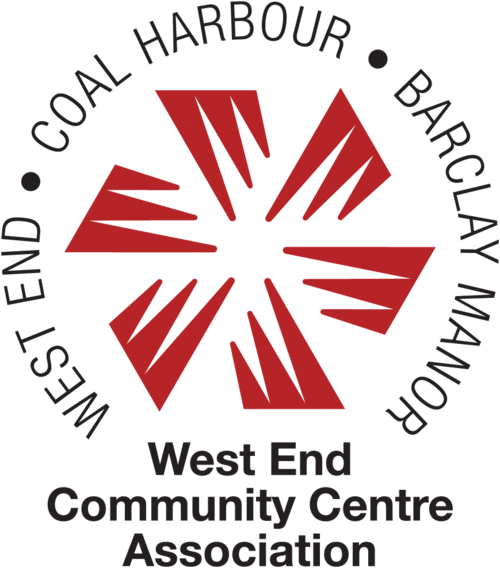STANLEY PARK NOTEBOOK
/by Jacqui Birchall
(click images to enlarge)
NEW FIRE PLAN FOR STANLEY PARK
And Report Any Campfires You Spot
On July 10 the Vancouver Park Board passed a motion to update the Stanley Park Forest Management Plan. The last plan was updated in early 2009. The Park Board advises that the new plan will be completed by this September and implemented by next summer.
First Nations are involved in the making of the new plan.
This is serious, folks! Report any fire you see in the park. (Jacqui Birchall Photo)
Park rangers have been assigned to enforce camping prohibitions in the park. This has proved difficult in the past when campers choose to secret themselves in hidden, off-trail areas that are hard to spot.
Rangers are also watering parts of the park to mitigate the drought.
Stanley Park covers an area of around 400 hectares. Drought, dying trees and the collapse of ancient ones, and the deadly effects of the Looper Moth all contribute to the high fire risk in the park. B.C. is experiencing the greatest number of forest fires in its history and yet some folks seem to think it is acceptable to light camp fires both in the park and on the beaches.
Third Beach is a prime example of where the thoughtless light fires. Earlier in July on my early morning walk I observed two campfires on Third Beach. One was a roaring fire with the camper adding more fuel. 911 was called and promptly responded.
With all camp fires banned throughout B.C. one has to wonder about the intelligence of the folks still lighting fires.
On my daily walks I frequently observe the remains of campfires on all the beaches from English Bay to the Lions Gate Bridge. If you see a burning campfire please report to 911. A spark is all it takes to ignite our beautiful park. There are new call 911 signs in the park. Do call.
The number of cigarette butts in the park is also overwhelming and point to a fire risk. The Vancouver Fire Department advises against any open flame, fires, and smoking in Stanley Park.
The West End Community Police recently tweeted, “During dry, hot weather, discarded cigarette butts pose a serious threat of fire. Violators are subject to fines ranging from $80 to $575. With pocket ashtrays, available from our storefront office, you will always have a safe way to dispose of your butts.”
When a tree falls in the forest. (Colin Spratt Photo)
ANCIENT TREE DOWN
Death By Natural Causes
Colin Spratt of Ancient Trees Vancouver recently found a fallen red cedar that he estimates to be 600 to 900 years old. Colin tells me that although tree died from natural causes, the drought is very dangerous for the park’s trees.The base of the fallen tree measures some 30 metres. One may observe the fallen red cedar at the corner of Tatlow and Lovers trails. This fallen tree adds to the fire risk in the park.
LOOPER MOTHS
A Lethal Infestation
Looper moth larvae can currently be observed in Stanley Park. They swirl around like tiny worms, hanging from branches by very thin threads. Check your hair and clothing after walking beneath the park trees as the larvae easily attach to you.
The western hemlock looper moth affects the western hemlock, western red cedar, interior spruce, and Douglas fir.
The moths will appear in full force later this month. As the fall approaches piles of dead and dying moths can be found in the park, particularly where there is a nighttime light source. Last year the seawall near Third Beach was covered in the moths. The moths kill affected trees.
Masses of dead fish clogged the shores of Lost Lagoon in July. (Jacqui Birchall Photo)
THREE SPINED STICKLEBACKS
Lost Lagoon Water Quality In Question
Thousands of dead fish clogged the shores of Lost Lagoon starting on July 19. A Park Board press release stated “preliminary evaluation is that these are three-spined sticklebacks which are native to BC and have been known to die after spawning. All of the dark, smaller fish are the young, while the silver fish are the adults.”
Most of the dead fish appear to be juveniles and incapable of spawning.
This follows previous years of dead and dying carp observed in Lost Lagoon in the fall. The quality of the water in Lost Lagoon is poor. Last month we included the results of an extensive UBC investigation of Lost Lagoon’s water quality.
There is much to learn about three-spined sticklebacks. They have no scales but instead have a type of armour. The three sticklers protruding from their backs are designed to make them less attractive as prey, as they will stick in the gullet of waterfowl. The males build nests in the sediment of fresh bodies of water and then dance to attract a female. The female then follows the male though a tunnel into the nest where she lays her eggs.
The male immediately bans the female from the nest and fertilizes the eggs. The female never returns to the nest and the male protects the eggs and the ensuing fry until they are able to care for themselves. The male often has more than one female lay eggs in his nest and aggressively protects the eggs and fry, fanning the nest as needed.
Three-spined sticklebacks also live in salt water but lay their eggs in fresh water.
You can find the link to a fascinating study on three-spined sticklebacks, as well as other sites referenced in this article, below.
PARK BOARD REVENUE OPTIONS
More Commercial Enterprises and “Green Adventures”
Titled “The Think Big Strategy” Park Board commissioner Marie-Claire Howard asked staff to find new ways to raise funds to cover rising costs.
This motion, which was put forward in January 2023, was discussed in depth at the Park Board meeting on July 17. Ideas to increase revenue include cultural activities by Indigenous businesses, allowing liquor sales and improving menus in the park concessions, increasing fees and charges, adding more lights to sports facilities, as well as creating paid “green adventures” like ziplining, paddle boarding, and hiking.
The board is examining advertising, partnerships, sponsorship and proposals from businesses and community groups who want to work with the Park Board.
These changes would be gradual over several years.
A remote controlled grass cutter makes trimming the slopes easier and safer. (Jacqui Birchall Photo)
REMOTE GRASS CUTTER
Trimming The Slopes Is Safer
The Park Board has contracted a remote controlled slope grass cutter. This compact mower cuts the extreme slopes around English Bay and Stanley Park. A ride-on mower is clearly too dangerous for operators on the steep park slopes. The contracted mower comes with an expert operator.
CELEBRATION OF LIGHT
Garbage Clean Up Efforts
The costs for policing and garbage cleanup during the Celebration of Light are enormous, and fall to City Hall. According to workers on scene, the amount of garbage left on the beaches is increasing annually.
Sifting for garbage and debris post-fireworks. (Jacqui Birchall Photo)
A large team of park employees, including a beach cleaning vehicle called a sifter, arrive on English Bay at 5 a.m. on the mornings following the fireworks. Ten workers scour the beaches for bottles, cans, pizza boxes and anything else that can jam the sifter.
The sifter leaves a clean and manicured beach and the workers also clean the surrounding grassy areas.
Garbage-strewn Denman Street seems to be ignored. I cleaned one section myself.
BEACH AVENUE BIKE LANE
As we go to press the city is reportedly looking at removing the Beach Avenue bike lanes and restoring two-way traffic. There are already new painted lines on the upper seawall between English Bay and Second Beach that suggest that route would again become a bike lane.
The Beach Avenue bike lanes are always full. Removal of the popular Beach Avenue bike lanes will cause congestion in other areas now enjoyed by pedestrians.










